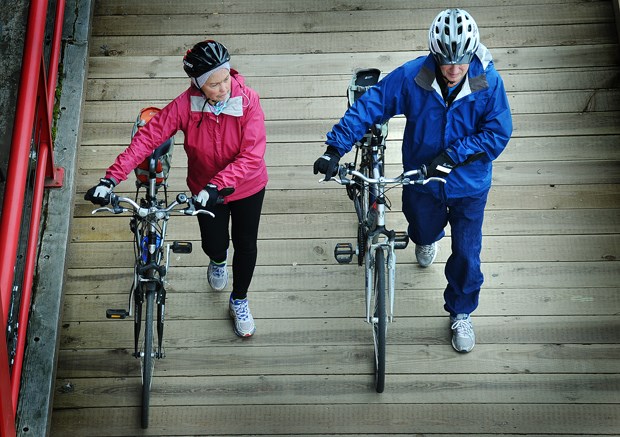It seems that with the crisp sunny days that we are experiencing – for now – on the North Shore, staying healthy for seniors is easy.
We can get out and walk unencumbered by umbrellas, hats, big coats and sunscreen. We can also be social, which is a good way to keep our stress levels down. We can participate in community activities which is a plus for seniors’ health and well-being. But staying healthy during the long rainy winter months (which are inevitably coming) can be a challenge for seniors.
Seniors can be more susceptible to unpleasant ailments such as colds, flus and increased stress. They can find it difficult to get out and about with the rain and snow, and sometimes, with the possibility of less social contact and activity because of inclement weather, they can experience increased levels of stress.
The good news is that there are a number of things we can do to keep colds, flus and other unpleasant and possibly life threatening things at bay.
The Vancouver Coastal Health website states that “Influenza, often called the ‘flu,’ is an infection of the nose, throat and lungs caused by an influenza virus. Many people use the term the ‘flu’ to refer to any illness caused by a virus, such as ‘stomach flu’ or the common cold, which are different than influenza. The flu is not always a harmless illness. It can cause serious health risks, including death. A person with influenza is also at risk of other infections. These include viral or bacterial pneumonia, an infection of the lungs.”
The risk for influenza is greatest for seniors 65 years and older, young children and people with lung or heart diseases, certain chronic health problems and compromised immune systems.
The VCH website suggests that your best defence is to get a flu shot. It also suggests that by not getting the flu shot, in addition to getting sick and possibly negatively affecting your immune system, you’re increasing the chances of others getting sick as well. Babies, for instance, under the age of six months, can’t be vaccinated.
To minimize their risk of getting sick, you can do your part by getting the flu shot. You won’t just be protecting yourself, but you’ll also help others.
There are several clinics across North Vancouver and you can find them by dialling 8-1-1 (HealthLink BC) or visiting the VCH website at vch.ca. If you are more than 65 years old you can also obtain a free flu shot at your family doctor, at a walk-in clinic or at your pharmacist.
There are techniques that people can use to keep the flu, colds and other infectious diseases at bay. These include frequent hand washing that can reduce the risk of all respiratory infections, practising safe coughing and sneezing techniques which will decrease the spread of germs, and staying at home if you think you have an influenza-like illness (i.e. fever and cough) will limit the spread of the diseases.
Stress is also a condition that affects our ability to fight off these infectious diseases. Stress causes the release of cortisol, the stress hormone, as well as adrenaline, which influences your blood pressure, heart rate, eating habits, sleep patterns, blood sugar levels, fat metabolism and, perhaps most importantly, your ability to fight-off illness.
The impacts of physical stress can be that wounds heal more slowly and colds become harder to shake. A 75-year-old heart can be slow to respond to the demands of exercise. And when an 80-year-old walks into a chilly room, it will take an extra-long time for his or her body temperature to adjust.
To manage stress, avoid stressful situations, adopt a healthy lifestyle and perhaps increase or find alternative physical activities – not always easy in inclement weather.
Walking may not be an option, but mall walking is a good replacement activity. On the North Shore, seniors should have no problem finding an exercise program or class that suits their needs at a recreation or seniors centre. Seniors can find an activity such as swimming, cycling, or dancing. They can look for group activities like badminton or lawn bowling.
If a senior has a physical disability they can find chair exercise classes (most seniors’ centres have them) and there are classes for balance and osteoporosis as well.
Let’s do our part this season and stay healthy in a healthy community.
Margaret Coates is the co-ordinator of Lionsview Seniors’ Planning Society. She has lived on the North Shore for 48 years and has worked for and with seniors for 20 of those years. Ideas for future columns are welcome Email: lions_view@telus.net.



